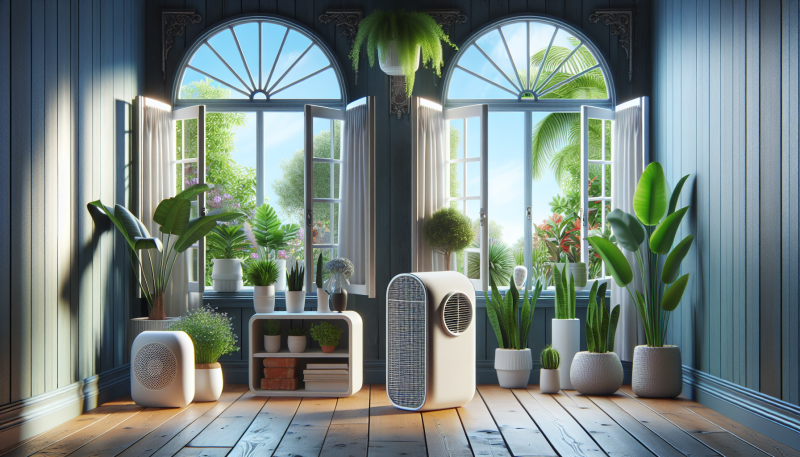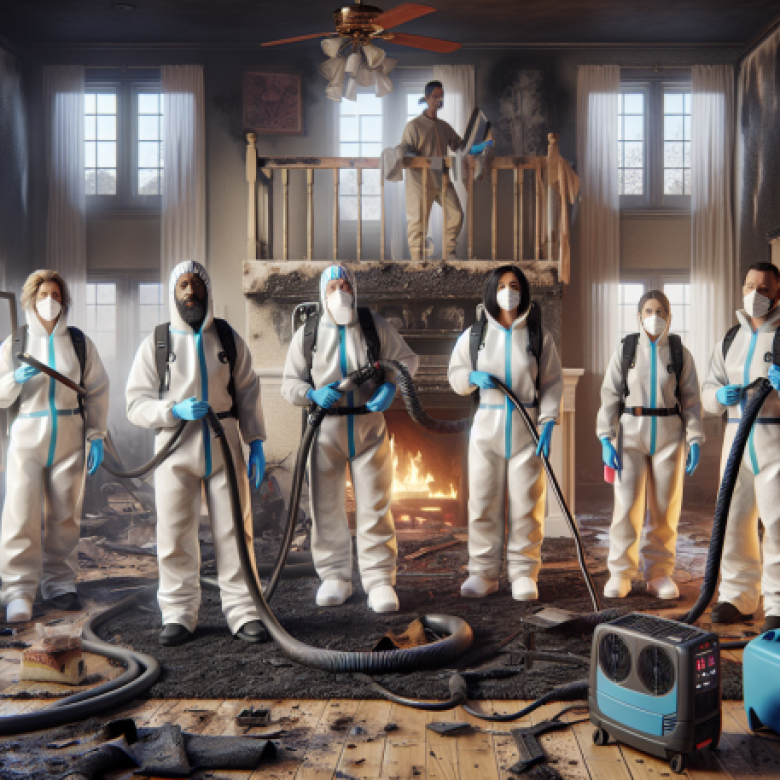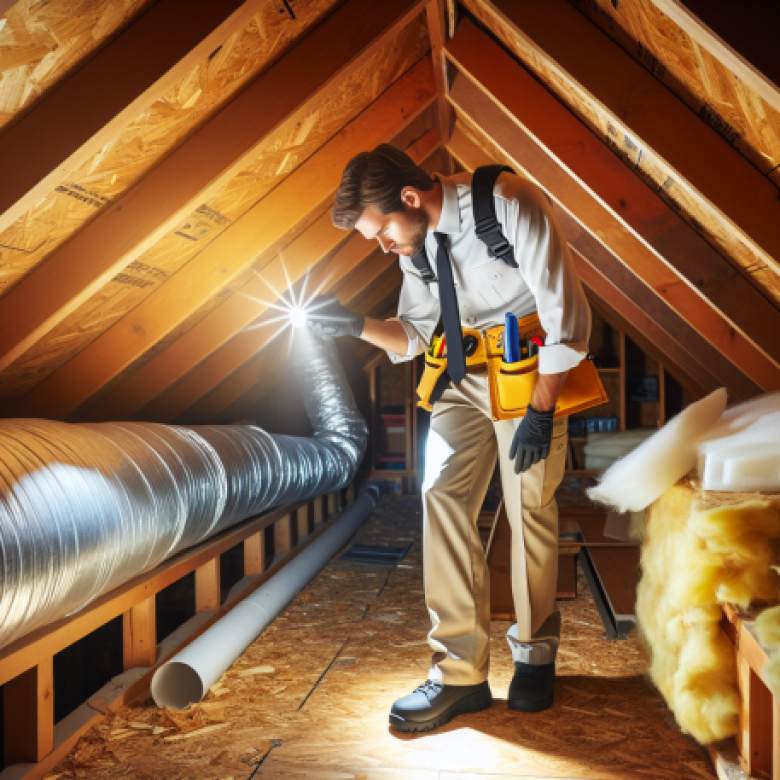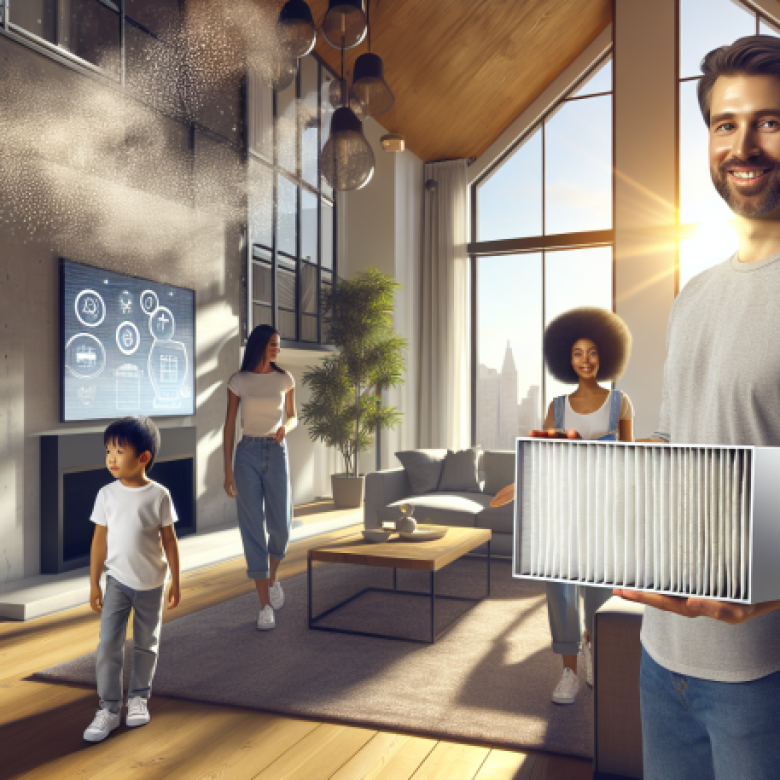Welcome to our comprehensive guide on improving indoor air quality through effective ventilation. Whether you’re dealing with a residential or commercial property, ensuring clean and fresh air is crucial for health and comfort. In this blog post, we’ll walk you through practical tips and strategies to enhance ventilation in your space. Let’s dive in!
Understanding the Importance of Indoor Air Quality
Indoor air quality (IAQ) is a critical aspect of maintaining a healthy living or working environment. Poor IAQ can lead to a range of health issues, from minor irritations like headaches and fatigue to more severe conditions such as respiratory diseases and allergies. But why is IAQ so important?
First, consider the amount of time we spend indoors. According to the Environmental Protection Agency (EPA), Americans spend approximately 90% of their time indoors. This statistic alone underscores the need for clean indoor air. Poor IAQ can exacerbate existing health conditions and even lead to new ones. For instance, mold growth due to inadequate ventilation can trigger asthma attacks and allergic reactions.
Moreover, poor IAQ can affect productivity and overall well-being. Imagine working in an office with stale air and unpleasant odors. It’s not just uncomfortable; it can also reduce your ability to concentrate and perform tasks efficiently. This is particularly relevant for commercial properties where employee productivity is paramount.
At Projekt Property Restoration, we understand the importance of maintaining excellent IAQ. Our services, including mold assessment and remediation, are designed to help you achieve a healthier indoor environment. Whether it’s a commercial property restoration or residential property restoration, we have the expertise to address your IAQ concerns.
Identifying Common Indoor Air Pollutants
Before we delve into ventilation tips, it’s essential to identify common indoor air pollutants. Knowing what you’re up against can help you take targeted actions to improve IAQ. Here are some of the most prevalent indoor air pollutants:
- Dust and Allergens: These include pollen, pet dander, and dust mites. They can trigger allergic reactions and respiratory issues.
- Volatile Organic Compounds (VOCs): Found in household products like paints, cleaning supplies, and air fresheners, VOCs can cause headaches, dizziness, and long-term health effects.
- Mold and Mildew: Mold spores thrive in damp environments and can cause respiratory problems and allergic reactions.
- Carbon Monoxide (CO): This odorless, colorless gas can be deadly. It’s produced by burning fossil fuels and can accumulate in poorly ventilated spaces.
- Radon: A naturally occurring radioactive gas that can seep into homes through cracks in the foundation. Long-term exposure can lead to lung cancer.
Addressing these pollutants requires a multi-faceted approach, including proper ventilation, regular cleaning, and the use of air purifiers. At Projekt Restoration, we offer mold assessment and remediation services to help you tackle mold-related issues effectively.
Effective Ventilation Strategies for Homes
Now that we’ve covered the importance of IAQ and common indoor air pollutants, let’s explore effective ventilation strategies for homes. Proper ventilation is key to maintaining a healthy indoor environment. Here are some practical tips:
Natural Ventilation
Natural ventilation involves using windows, doors, and vents to allow fresh air to circulate throughout your home. Here are some tips to maximize natural ventilation:
- Open Windows and Doors: Whenever possible, open windows and doors to let fresh air in. This is especially important during activities that generate pollutants, such as cooking or cleaning.
- Cross Ventilation: Create a cross-ventilation effect by opening windows on opposite sides of a room. This allows air to flow freely and helps remove stale air.
- Use Ventilation Fans: Install exhaust fans in kitchens and bathrooms to remove moisture and odors. These fans help prevent mold growth and improve overall air quality.
Mechanical Ventilation
Mechanical ventilation systems are designed to provide consistent and controlled airflow. Here are some options to consider:
- Exhaust Ventilation Systems: These systems use fans to expel indoor air to the outside. They are effective in removing pollutants and moisture.
- Supply Ventilation Systems: These systems bring fresh outdoor air into the home. They are particularly useful in tightly sealed homes where natural ventilation is limited.
- Balanced Ventilation Systems: These systems combine both exhaust and supply ventilation to provide a balanced airflow. They are ideal for maintaining consistent IAQ.
For more information on improving IAQ in your home, check out our contact page or explore our calculator to estimate the cost of our services.
Ventilation Tips for Commercial Properties
Maintaining good IAQ in commercial properties is crucial for the health and productivity of employees and customers. Here are some ventilation tips tailored for commercial spaces:
Regular Maintenance of HVAC Systems
Heating, ventilation, and air conditioning (HVAC) systems play a vital role in maintaining IAQ. Regular maintenance is essential to ensure they function efficiently. Here are some tips:
- Change Air Filters: Replace air filters regularly to prevent the buildup of dust and allergens. Clogged filters can reduce airflow and compromise IAQ.
- Clean Ducts: Schedule professional duct cleaning to remove dust, mold, and other contaminants. Clean ducts improve airflow and reduce the risk of pollutants circulating in the building.
- Inspect and Repair: Regularly inspect HVAC components for wear and tear. Address any issues promptly to prevent system failures and maintain optimal IAQ.
Implementing Air Purification Systems
Air purification systems can significantly enhance IAQ in commercial properties. Here are some options to consider:
- HEPA Filters: High-efficiency particulate air (HEPA) filters capture airborne particles, including dust, pollen, and mold spores. They are highly effective in improving IAQ.
- UV Germicidal Lights: These lights use ultraviolet (UV) radiation to kill bacteria, viruses, and mold spores. They are often installed in HVAC systems to purify the air.
- Activated Carbon Filters: These filters remove odors and VOCs from the air. They are particularly useful in commercial kitchens and areas with strong odors.
For more information on maintaining IAQ in commercial properties, visit our Sunrise Restorations page or learn about our water damage restoration services.
Dealing with Mold and Moisture
Mold and moisture are common culprits of poor IAQ. Addressing these issues promptly is essential to maintain a healthy indoor environment. Here are some tips:
Identifying Mold and Moisture Issues
Early detection of mold and moisture problems can prevent extensive damage and health risks. Here are some signs to look out for:
- Musty Odors: A musty smell is often an indicator of mold growth. If you notice this odor, investigate the source immediately.
- Visible Mold: Mold can appear as black, green, or white patches on walls, ceilings, and other surfaces. If you see mold, take action to remove it.
- Water Stains: Water stains on walls or ceilings indicate moisture problems. Address the source of the moisture to prevent mold growth.
Preventing Mold and Moisture
Preventing mold and moisture issues requires proactive measures. Here are some tips:
- Control Humidity Levels: Keep indoor humidity levels below 60% to prevent mold growth. Use dehumidifiers in damp areas like basements and bathrooms.
- Fix Leaks Promptly: Repair any leaks in roofs, walls, or plumbing to prevent water damage and mold growth.
- Ensure Proper Ventilation: Use exhaust fans in kitchens and bathrooms to remove moisture. Ensure that your home is adequately ventilated to prevent condensation.
At Projekt Restoration, we offer mold assessment and remediation services to help you address mold and moisture issues effectively. Contact us for expert assistance.
Using Air Purifiers and Dehumidifiers
Air purifiers and dehumidifiers are valuable tools for improving IAQ. Here’s how they can help:
Air Purifiers
Air purifiers remove airborne particles and pollutants, improving the overall air quality. Here are some benefits:
- Allergen Removal: Air purifiers with HEPA filters capture allergens like dust, pollen, and pet dander, reducing allergy symptoms.
- Odor Elimination: Activated carbon filters in air purifiers remove odors from cooking, pets, and smoke, leaving your home smelling fresh.
- Reduction of VOCs: Air purifiers can remove VOCs from household products, improving IAQ and reducing health risks.
Dehumidifiers
Dehumidifiers reduce indoor humidity levels, preventing mold growth and improving comfort. Here are some benefits:
- Mold Prevention: By reducing humidity, dehumidifiers prevent mold growth and protect your home from moisture damage.
- Improved Comfort: Lower humidity levels make your home more comfortable, especially during hot and humid weather.
- Enhanced IAQ: Dehumidifiers help maintain optimal IAQ by preventing the buildup of moisture and related pollutants.
For more information on using air purifiers and dehumidifiers, visit our dehumidification page or explore our infrared thermal imaging services.
Conclusion
Improving indoor air quality through effective ventilation is essential for maintaining a healthy and comfortable living or working environment. By understanding the importance of IAQ, identifying common pollutants, and implementing practical ventilation strategies, you can significantly enhance the air quality in your space.
At Projekt Restoration, we are committed to helping you achieve excellent IAQ. Our services, including water damage restoration, fire damage restoration, and biohazard cleanup, are designed to address your IAQ concerns effectively. Contact us today for expert assistance and low pricing on our services.
FAQs
What are the signs of poor indoor air quality?
Signs of poor indoor air quality include persistent odors, visible mold growth, excessive dust, and health symptoms like headaches, fatigue, and respiratory issues. If you notice these signs, it’s essential to take action to improve IAQ.
How often should I change my HVAC air filters?
It’s recommended to change HVAC air filters every 1-3 months, depending on usage and the type of filter. Regularly changing filters helps maintain optimal airflow and improves IAQ.
Can air purifiers help with allergies?
Yes, air purifiers with HEPA filters can effectively capture allergens like dust, pollen, and pet dander, reducing allergy symptoms and improving overall IAQ.
What is the ideal indoor humidity level to prevent mold growth?
The ideal indoor humidity level to prevent mold growth is below 60%. Using dehumidifiers and ensuring proper ventilation can help maintain optimal humidity levels.
How can I improve ventilation in my home without an HVAC system?
You can improve ventilation in your home by opening windows and doors, using exhaust fans in kitchens and bathrooms, and creating cross-ventilation by opening windows on opposite sides of a room. These methods help circulate fresh air and remove pollutants.





